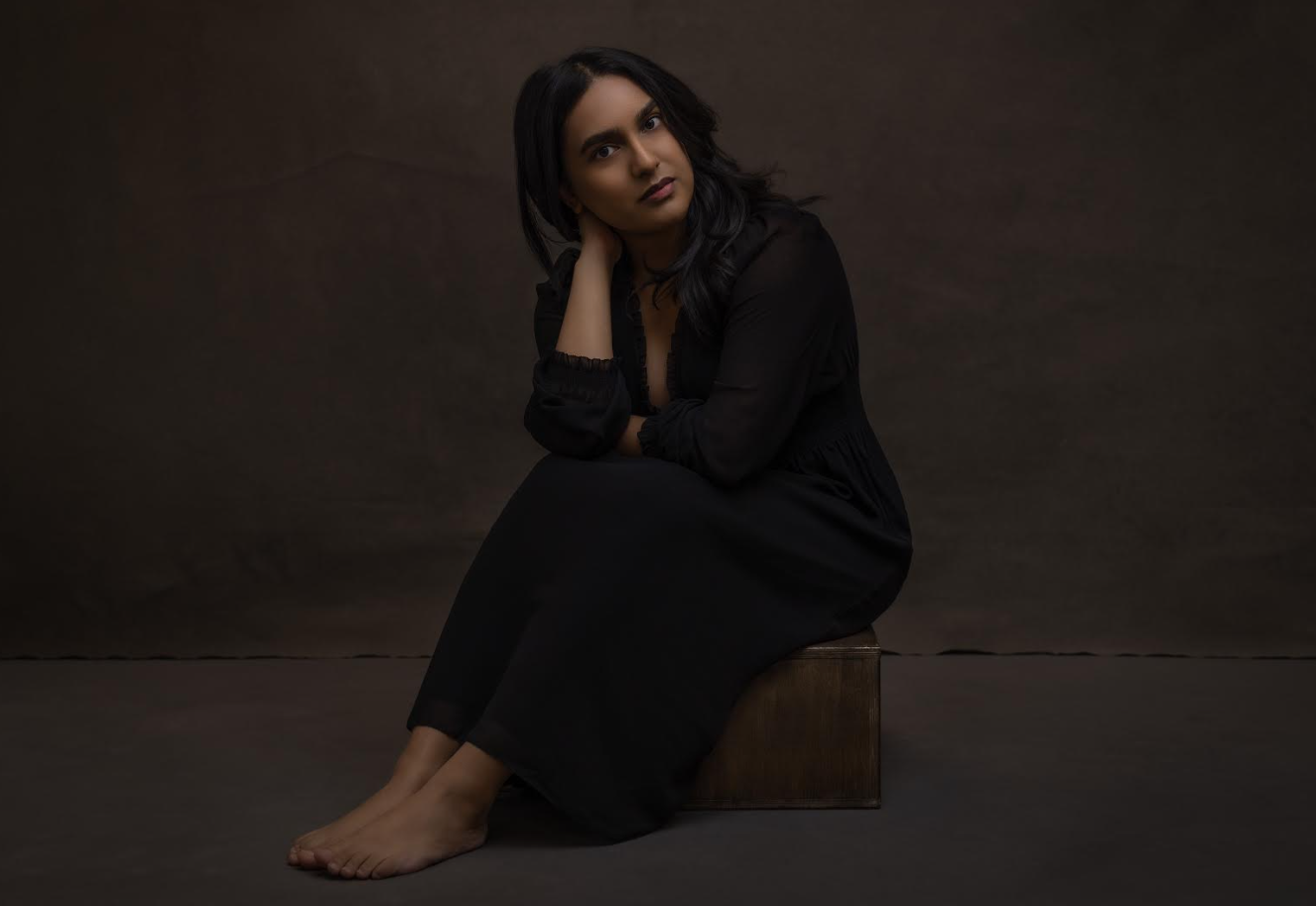Alisa Samuel on discovering the truth behind your own writing
Samuel speaks about the publishing lessons that led to her recent chapbook, Post-Funeral Dance.
On March 5, 2023, I attended a book launch at House of Anansi Press in Toronto. The event, hosted by Anstruther Press—a Toronto-based chapbook publisher—included readings from writers EJ Kniefel, Emma Rhodes, Trynne Delaney, and Alisa Samuel to celebrate their recently published work.
Samuel, a student in the Professional Writing and Communication (PWC) program at the University of Toronto Mississauga (UTM), is The Medium’s Sports & Health Editor and author of the chapbook Post-Funeral Dance. After the event, I spoke with Samuel about the influences behind her poetry and on her experiences within the publishing world.
“My chapbook is 20 pages, the standard size for Anstruther, and contains mostly haiku alongside some longer blank-spaced, free-verse poems, and a piece of flash fiction,” Samuel said. Compared to larger-form poetry collections, chapbooks typically don’t exceed 40 pages.
Samuel wrote the poems for her chapbook over the summer of 2021 in an introductory-level creative writing course with Professor Kateri Lanthier and teaching assistant Lily Wang—this was the first time she wrote poetry. By analyzing and imitating the works of other poets, Samuel realized her love for “the minimalism, gentleness, and emotional potency of haiku, along with its observational nature and history.” She used the techniques of haiku in Post-Funeral Dance to reflect on grief, violence, and the mundanity of everyday life.
While she did not write with the intention to publish, Samuel expressed that it was curiosity that encouraged her to email a manuscript of poems to Jim Johnstone, the Editor-in-Chief of Anstruther.
“As I was flipping through a U of T magazine, I came across Anstruther’s name in a student author’s bio,” said Samuel. “The student had no formal writing background and was studying anthropology. I thought if she could publish a chapbook, I can at least try, for the sake of gaining work experience outside of academia.” Samuel has taken other creative writing courses at UTM, served as the Editor-in-Chief of Mindwaves for volume 15—PWC’s student-led journal of creative non-fiction—and worked as a research assistant for former UTM writing Professor Geoff Bouvier in the Department of English.
As writing is often a vulnerable process, I asked Samuel how she decided to trust readers with Post-Funeral Dance. “I didn’t make a conscious decision to entrust readers with all that my poems might reveal about me,” she answered. “I’m okay with them taking whatever they will from their readings, knowing that any interpretation of art is essentially a reflection of the perceiver’s mentality—not of the actual experiences expressed by the artist.”
Regarding her connection with audiences, Samuel likes to hear directly from readers. “Not too long ago, a Saskatchewan poet emailed me with congratulations on Post-Funeral Dance, saying that she was deeply touched by it,” she shared. “For me, if there’s any reward in embracing the vulnerability of creative pursuits and writing anecdotally, it’s that—hearing from others and listening to what they have to say in response.”
Finally, to conclude, Samuel spoke about her earliest publication, a lyric essay that appeared in a Canadian literary magazine in 2020. Like her chapbook, she wrote this essay for a course taught by Professor Bouvier in her first year at UTM. Professor Bouvier now teaches the essay to mid-level creative writing students at Virginia Commonwealth University.
“I’ve visited a couple of his classes as a guest speaker to discuss the making of my essay and to answer any questions his students might have as they work on their own,” she explained. “In one of those talks, a student asked me if I regretted publishing the piece, as it makes personal assessments of family, history, religion, and trauma.” Inspired by the body horror films of David Cronenberg, the essay was based on beliefs that Samuel no longer holds. She said: “I basically say [in the essay that] I’m lost and can’t be found, because who I am is fragmented, in pieces everywhere, even across time, mirroring the sort of gory brokenness I’ve seen and come to know of this world.”
Two months ago, the magazine removed the essay from their site at Samuel’s request.
“The thing is, no matter how hard I felt and believed in what I wrote in the moment, to say that I’m nothing but akin to the image of some dead or dying mutilated body is simply wrong,” Samuel confessed. “In that essay, the identity I selfishly proclaim, rooted in filmic abstractions, grievance culture, and depression, is a proud lie, and I don’t want my work to tell lies, because I aim to live in the truth that I, like anyone else, can in fact live in pain and concurrently be made whole through faith.”
Following her experience with publishing, Samuel’s advice to student writers is this: “The excitement that comes from potentially adding a publishing credit to your resume is persuasive. In our increasingly digitalized and interconnected world, however, consider your reasons and motivations for publishing schoolwork, especially under your real name. Just because some idea is popular doesn’t make it true.”

